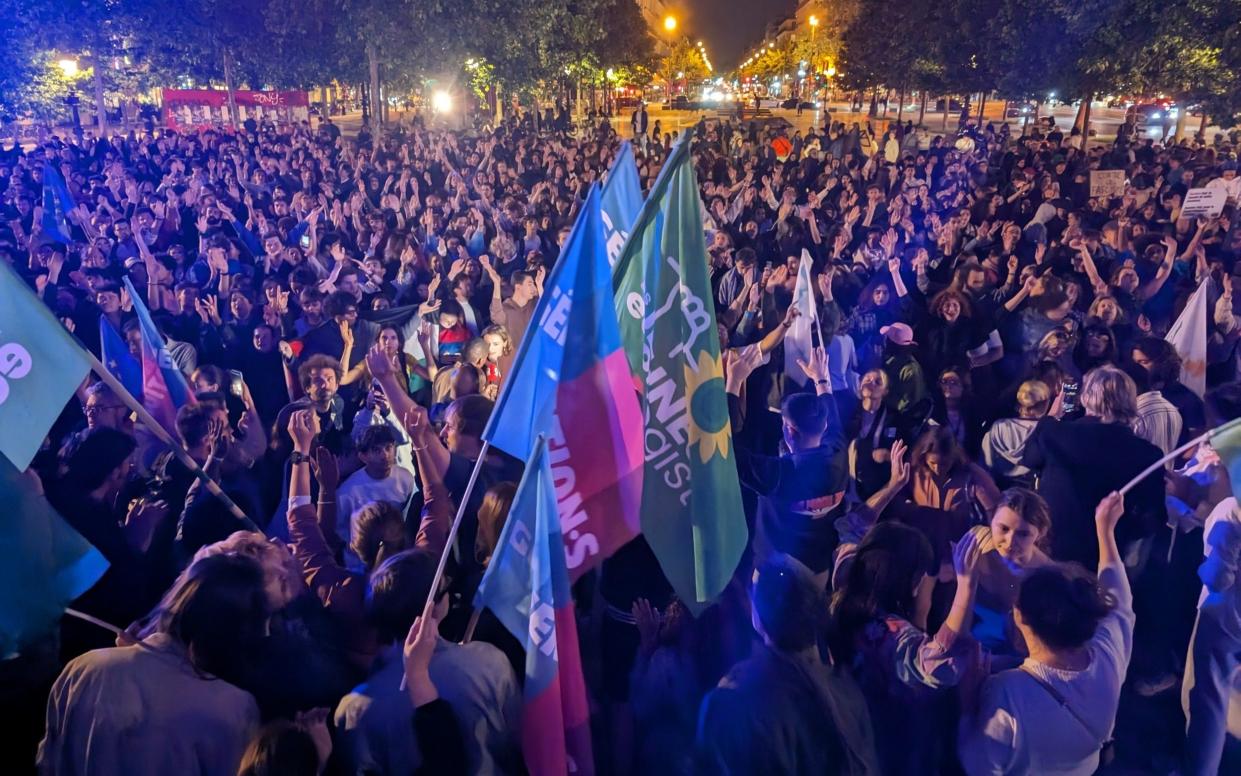Europe has entered a new political era

You should ignore many of the headlines about the European election results. Excitable forecasts of a tidal wave of populism were not realised and most of the headlines will be some version of “Centre holds in face of far-Right surge”.
Two things to realise: first, headlines like that are an example of what is now called “cope”. Second, Europe has entered a new political era. The nature of EU wide politics has clearly shifted. The most dramatic outcome, Emmanuel Macron’s bold decision to dissolve the National Assembly and call snap elections, reflects the way France is a forerunner or microcosm of wider European shifts.
The results show, unsurprisingly, much variation between member countries. Even so, patterns emerge. First, there were major gains for the so-called “far Right” (actually populist or national collectivist right). This was most marked in France, Germany, and Austria but happened more widely. The headlines understate the extent of this because several major populist parties are not in one of the two populist groups (ECR and ID).
Second, the centre-Right (EPP) performed solidly, leading the way in countries like Poland, Germany, and Sweden and making small gains overall. The centre Left did badly in some places, notably France and Germany, but held its ground in places like Italy and Spain. Overall, it stood still.
Third, there were significant losses for Greens and liberals (most dramatically in France and Germany) and smaller but still significant ones for the radical left.
One feature that deserves emphasis, not least because of the marked contrast with UK politics (at least for now), is the marked movement to the populist Right among younger voters (under 25). This was clearest in France and Germany but can be seen almost everywhere.
What, though, does all this mean, and why is this a significant result?
This is a moment of breakthrough for the national collectivist Right at the level of European politics. Parties of this kind can no longer be dismissed as fringe or walled off behind a cordon sanitaire. They are now part of the conversation or dialogue about the future direction of the EU and Europe. This was recognised in the responses of the centre Right, with remarks to the effect that “we now have a proper opposition’ (the populist Right). The point is that that shows acceptance of the Right as an opponent or interlocutor.
By contrast, the radical Left and the Greens have been marginalised in terms of their role in conversations about the future of Europe. Outside Scandinavia, where they did well, parties of that kind went backward. They are now a much smaller force than the populists, and both centre right and centre left will have to recognise and deal
with the obvious reaction against environmental policies.
The most significant reality to emerge though is that for the first time since the Treaty of Rome, we now have genuine European politics, not just a series of national political conversations stuck together. The campaigns in all countries obviously reflected domestic concerns but were dominated by a wider argument about the future direction of Europe as a whole. In that conversation there now six defined participants, nationalist Right, centre Right, centre Left, liberals, greens, and radical Left.
The main conversation or debate going forward is going to be between the two main centre groups and the nationalist right and this will likely open up divisions in all three groups. Eventually though a broad agreement will emerge, which will have to address the concerns of the nationalist Right (otherwise their support will continue to increase).
France will be at the heart of this. Macron’s calling snap elections is a bold raising of the stakes in response to this new situation. He hopes to confront French voters with a clear choice, between the liberal centre and the RN of LePen and its rising star, Jordan Bardella. His thinking is that the French electoral system makes it difficult for the RN to get a majority and even if it does, he can obstruct their agenda and leave them in office but not power. The hope is that this will reduce their popularity.
Always a remarkably strategic politician, he is also anticipating that this election will eliminate the far Left and leave a clear choice between his own party and Bardella’s, so setting the course for not only French but wider European politics. The wider course of European politics has tended to follow movements in France and Germany, so he is thinking about not just the next two years but beyond that.
Dr Stephen Davies is a historian and author

